Ever found yourself in the middle of baking and realized you’re out of rye flour? We’ve all been there. It’s that moment of panic mixed with a pinch of creativity that often leads to the best kitchen discoveries.
In this article, we’re spilling the beans on the top 5 substitutes for rye flour that can save your recipe and possibly make it even better. “Necessity is the mother of invention,” right? Well, in the kitchen, it’s the mother of substitution.
Each substitute we’ve uncovered isn’t just a second choice; it’s a way to bring a fresh twist to your favorites. We’re here to help you keep that apron on and oven hot, with confidence that your baked goods will come out great.
What is Rye Flour?

It comes from the rye plant, which is similar to wheat.
Rye is a plant that people have been growing since ancient times but has gained popularity only in recent times.
It can grow very well in a dry and cold climate and even in poor soil.
Rye flour contains gluten but in small amounts and so it’s not that elastic.
But it also has fiber, protein, vitamins and minerals.
So, unless you are gluten intolerant, you can consume it with ease.
The consumption of rye flour in moderate quantities can be good for health since it has several nutrients.
But if you don’t like its flavor or can’t find it, try the following in your recipes.
The 5 Best Substitutes For Rye Flour
There is no exact replacement since each type of flour is different.
Here’s a detailed comparison of the 5 best substitutes for rye flour, along with their key characteristics and proper ratios:
| Substitute | Key Characteristics | Proper Ratio |
|---|---|---|
| Spelt Flour | Spelt flour is an ancient grain with a nutty flavor and a slightly sweet taste. It has a similar texture to rye flour. | Use an equal amount of spelt flour as you would with rye flour in recipes. |
| Wheat Flour | Wheat flour is a common substitute for rye flour. It has a milder flavor and a lighter texture compared to rye flour. | Use an equal amount of wheat flour as you would with rye flour in recipes. |
| Rice Flour | Rice flour is a gluten-free alternative to rye flour. It has a neutral flavor and a fine texture. | Use an equal amount of rice flour as you would with rye flour in recipes. |
| Kamut Flour | Kamut flour is also an ancient grain that can be used as a substitute for rye flour. It has a rich, buttery flavor. | Use an equal amount of kamut flour as you would with rye flour in recipes. |
| Barley Flour | Barley flour is made from ground barley grains. It has a mild, nutty flavor and a denser texture than rye flour. | Use an equal amount of barley flour as you would with rye flour in recipes. |
Now, let’s discuss each substitute in more detail:
1 – Spelt Flour
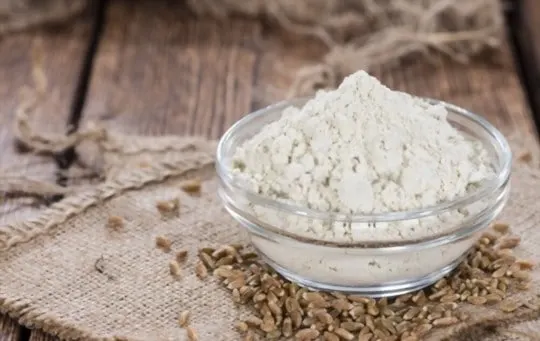
One of the ancient grains, and also called hulled or Dinkel wheat, spelt flour can be a good alternative for rye.
It’s nuttier and more complex in flavor than whole wheat flour.
It has an earthy note, too, so it’s similar to rye.
You can make quick bread, pancakes, cakes, scones, cookies and muffins with spelt flour.
But it’s denser than rye flour, and so you should use less amount when using it as an alternative.
Spelt flour also contains some gluten though it has plenty of nutrients.
Even if it’s similar to rye, you should avoid it if you’re gluten intolerant.
Other than that, you can substitute it for rye.
As mentioned earlier, there is no exact replacement and measuring can vary from one recipe to another.
So, you have to check, taste and add as you work on a recipe.
Suitable ratio.
- 1 cup rye flour = 1/2 cup spelt flour (add more if needed and combine it with another flour to get the elasticity).
2 – Wheat Flour
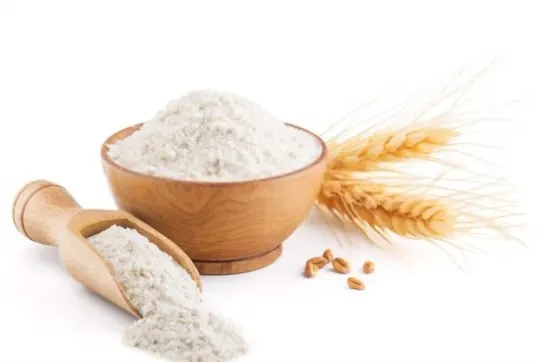
As it’s readily accessible, wheat flour can also substitute for rye flour.
Besides, it has a neutral flavor, so it won’t have an overpowering effect.
Besides, it rises well, so it’s useful in many recipes.
You can make pastries, pancakes, desserts, bread, cookies, pasta and other items with wheat flour.
It isn’t as nutritious as rye flour, but it still offers benefits as it has antioxidants, protein, minerals and vitamins.
Wheat flour also contains some gluten.
But most people can consume it without any problem.
Only people who have celiac disease, wheat allergy and those who are gluten intolerant should avoid it.
Suitable ratio.
- 1 cup rye flour = 1 cup wheat flour.
3 – Rice Flour
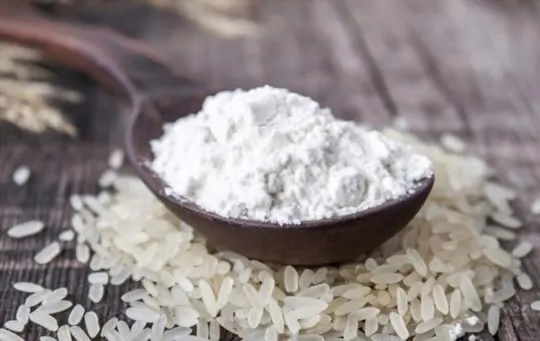
Rice is a staple food in most regions of the world, and so it’s readily available.
It’s also a suitable alternative if you are looking for a gluten-free product.
Besides, rice flour has a mild taste, so it won’t overpower your food.
Rice flour is also a versatile ingredient, and you can make many things with it.
Use it to make noodles and pasta, cakes, bread, cookies, pancakes, and much more.
However, you should add some ground nuts and some other flours to absorb water better.
You can also use it as a thickening agent in some dishes.
Since it’s gluten-free, it’s a healthy choice for everyone.
Suitable ratio.
- 1 cup rye flour = 3/4 cup rice flour (add ¼ ground nuts or another flour).
4 – Kamut Flour
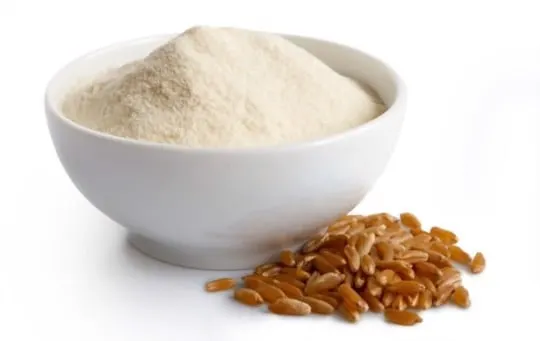
Another ancient grain, Kamut flour, can also replace rye flour in most recipes.
It’s also known as Khorasan wheat, and you can use whole wheat in savory dishes too.
Kamut has a chewy, nutty texture and will be close to flavor with rye.
You can make a variety of items with Kamut flour-like muffins, pancakes, cakes, bread and cookies.
You can also use it in soups and stews to give them a thicker texture.
Kamut flour contains vitamins, minerals, proteins and unsaturated fatty acids.
So, it’s good for health but contains gluten in small quantities.
If gluten doesn’t bother you, then you can eat it without any problem.
Suitable ratio.
- 1 cup rye flour = 3/4 Kamut flour (add1/4 another flour).
5 – Barley Flour
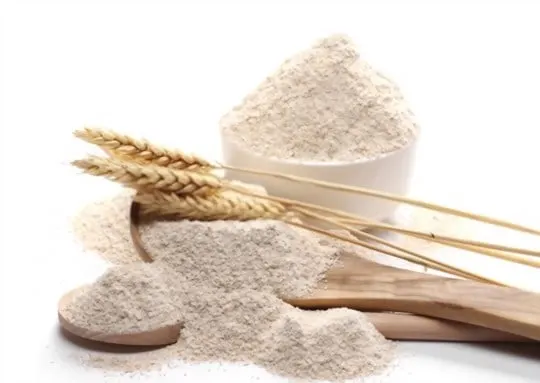
Last but not least, you can also use barley flour instead of rye.
It’s a common ingredient in baking in European cuisines and is similar to rye.
If you don’t mind the slightly bitter taste, use it in any recipe that asks for rye flour.
However, it also doesn’t rise, and you may need to use some other flour to make it rise.
Barley flour is ideal for making flatbread, pancakes, muffins, cookies and biscuits.
You can also add it whole in soups and stews.
Barley is also highly nutritious though it has some gluten.
If you don’t have a problem consuming gluten, you can use it sometimes.
Suitable ratio.
- 1 cup rye flour = 3/4 cup barley flour ( add 1/4 other flour that rises).
Conclusion
As stated earlier, there is no exact substitute as each product has a different texture and flavor.
So, you have to follow a recipe to make it work.
The key to success is to use a smaller amount of each ingredient in the beginning, as you can always add more.
You can also use buckwheat flour, all-purpose flour, millet flour or oat flour and see how it tastes.
There is always room for experiment, and the idea is to create a flavorful item.
So, you can mix and match and come up with even some new tastes.
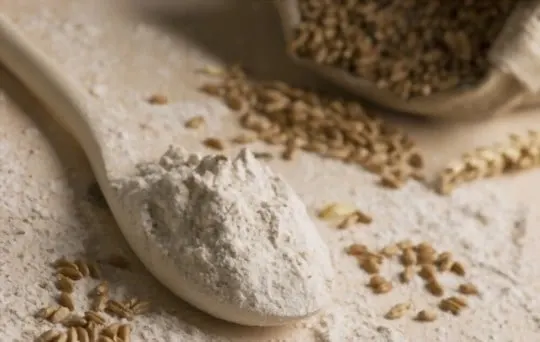
The 5 Best Substitutes for Rye Flour
Ingredients
- Spelt Flour
- Wheat Flour
- Rice Flour
- Kamut Flour
- Barley Flour
Instructions
- Pick your favorite substitute from the list above.
- Follow cooking directions for your selected substitute with the proper ratio of ingredients.

Andrew Gray is a seasoned food writer and blogger with a wealth of experience in the restaurant and catering industries. With a passion for all things delicious, Andrew has honed his culinary expertise through his work as a personal chef and caterer.
His love for food led him to venture into food writing, where he has contributed to various online publications, sharing his knowledge and insights on the culinary world. As the proud owner of AmericasRestaurant.com, Andrew covers a wide range of topics, including recipes, restaurant reviews, product recommendations, and culinary tips.
Through his website, he aims to inspire and educate fellow food enthusiasts, offering a comprehensive resource for all things food-related.

Leave a comment